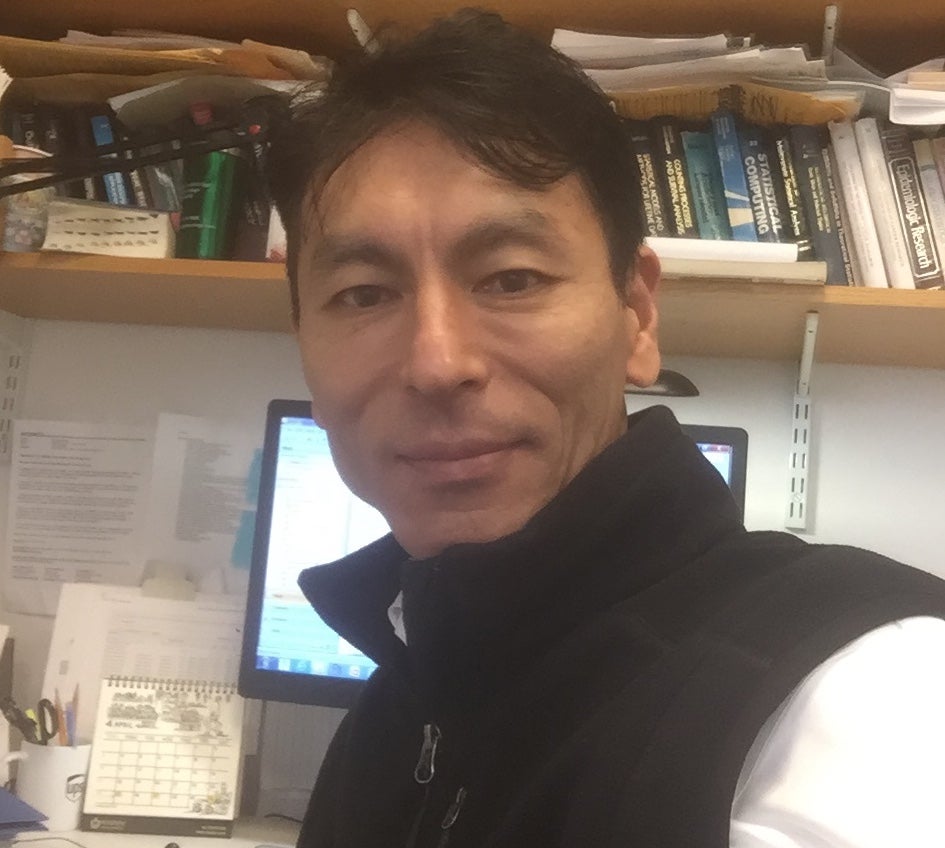News & Highlights
Topics: Biostatistics, Clinical Trials, Education & Training, Five Questions
Five Questions with Hang Lee
Our most requested biostatistics consultant emphasizes the importance of study design.

Hang Lee, PhD, is associate professor of medicine at Harvard Medical School and the Massachusetts General Hospital Biostatistics Center. At the hospital, he serves as associate director of biostatistics consulting through Harvard Catalyst, a service that provides free assistance for Harvard-affiliated investigators at all stages of the research process.
You’re one of the most requested biostatistics consultants for study design. Why is study design so important and how else do you assist clinical researchers?
Designing a study is important because accurate, precise, and reproducible results of clinical research studies depend on the quality of study design as well as implementation. Both rely on well thought out and carried-out statistical considerations to filter the signal from the noise and bias.
“Designing a study is important because accurate, precise, and reproducible results of clinical research studies depend on the quality of study design as well as implementation.”
With clinical researchers, I try to be instrumental from the beginning to the concluding stage of the study cycle. We exchange ideas and I help them translate medical hypotheses into testable statistical hypotheses, determine adequate sample size, perform sampling and randomization, collect, reduce, and analyze the study data, interpret the analysis results, and write scientific reports.
How successful have virtual consultations been? Any takeaways for the future?
It was a fairly seamless transition to all virtual, which no one had experienced before. The crux of consultation is to listen. We listen very carefully to what the medical researchers describe – their ideas, their problems, and the questions they want to ask. Zoom, I think, is a plus for scheduling flexibility. Those who are also physicians are busy and sometimes on call, and sometimes we need other researchers or statisticians in on the meeting. “Zoomability” allows for different locations and at more flexible times, say in the evening or early in the morning.
Face-to-face meetings are ideal, but we all found virtual to be beneficial as well. Over the past year and a half, we’ve also become busier, and with the virtual format, we are able to assist more people.
“The crux of consultation is to listen. We listen very carefully to what the medical researchers describe – their ideas, their problems, and the questions they want to ask.”
What are some examples of recent clinical research on which you’ve collaborated?
I identify myself as a statistician by training and a team scientist/clinical researcher by practice. Aside from the Catalyst duty, I spend considerable time collaborating with MGH and Harvard-based local, national, and international study teams in endocrinology and metabolism, interventional cardiology, and oncology.
I serve as co-investigator statistician for the Harvard Nutrition Obesity Research Center (NORCH), Study of Women’s Health Across the Nation (SWAN) MGH Site, Cardiac Optical Coherence Tomography (OCT) Registry (an MGH-initiated international longitudinal cohort study), Glioma NCI Specialized Programs of Research Excellence grant, Biostatistics and Computational Biology CORE, as well as numerous federally funded projects.
Are you doing what you thought you’d be doing professionally at this point in life?
I’m from Korea and there in college, I majored in statistics and economics, but didn’t really know if I wanted to be a mathematician or what I wanted to do. Then I came to this country for graduate school and discovered the world of opportunity for a statistician in the medical field. I realized that there were so many problems to tackle and that I could be instrumental in working with others to solve them. It’s been a rewarding career.
What hobbies or activities make life fulfilling outside of work?
I deal with numbers and science all day so at my leisure, I enjoy singing as a chorus member of the Harvard-Radcliffe Chorus. We typically rehearse weekly and do concerts in Sanders Theatre every fall and spring. Last year we were supposed to sing Beethoven’s “Faith, Fantasy and a Fiercely Original Giant,” to honor its 250 anniversary, but unfortunately we had no concerts. We instead gathered virtually every Wednesday evening by Zoom to sing and study music theory. I trust we can sing again in the not-so-distant future, and I look forward to it.

